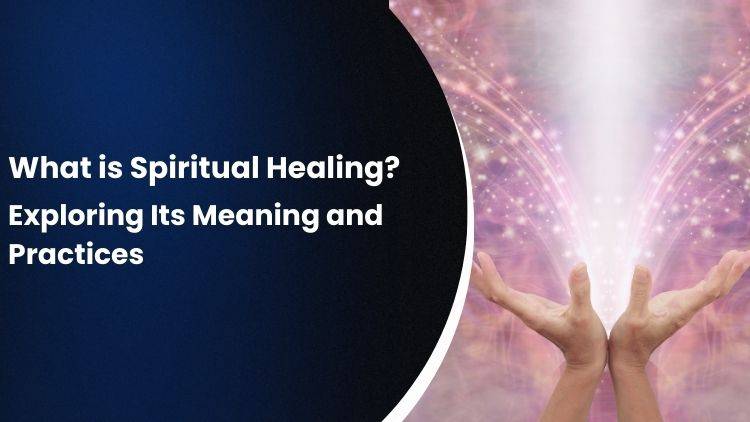
What is Spiritual Healing? Exploring Its Meaning and Practices
Introduction to Spiritual Healing
Spiritual healing is as old as human civilization and it cures not only a man’s soul but also his body and mind. It is the process by which one comes back to a balanced position by centering on the own self. Islamic teachings have also adopted several of the managing factors that relate to a person’s problems regarding the emotional system, mind, and body. These are the areas of concentration of this blog: spiritual healing, activities or processes of spiritual healing, and compatibility with Islamic teachings.
Understanding Spiritual Healing
Spiritual healing is a term that targets the physical, mental, and energy-related fields of an individual to restore order in the human body. It is different from most medical treatments for purity of energy in the human body, treatment of amputated feelings, and searching for harmony within the spirit. It includes mindful reflection, supplication, contemplation, and the use of energy to clear old patterns that detract from the light.
Basically, spiritual healing implies faith in a higher power to effect change by invoking such powers as prayer and guidance. People still use it as an additional therapy for those who want to find purpose and harmony in their life, loss, or mental health problems.
The Practice of Spiritual Healing
Spiritual healing can take many forms depending on the individual's needs and the cultural or religious context. Some common practices include:
-
Meditation: Meditation is an act of bringing the mind to focus to get rid of thoughts that are inactive or unfruitful, for the sake of training the mind in gaining awareness for a higher or divine purpose. It helps them to have a blank mind, to try to make sense and to try and be at one with oneself.
-
Energy Healing: Energy healing is based on the idea of the presence of blockages or unhealthy energies within a person’s body. Energy healers, therefore, rectify the imbalances of the energy of the body to improve the well-being of the person’s physical, emotional, mental, and spiritual well-being.
-
Prayer and Blessings: Purification in many religions especially the Islamic religion entails prayer to Allah for purification. Prayer plays an important role in the life of Muslims because it gives people the possibility to get comfort, power, and forgiveness from the Almighty. Also, Dua and blessings are prayers that are said for healing and protection from evil.
-
Healing Retreats: Spiritual healing retreats offer a peaceful environment for individuals to disconnect from their daily stresses, meditate, reflect, and engage in spiritual practices. These retreats often combine various healing modalities such as group therapy, energy healing, prayer, and mindfulness techniques, fostering emotional and spiritual renewal.
Spiritual Healing in Islam
In Islam, spiritual healing is deeply rooted in faith and connection with Allah. The belief in healing through prayer and reliance on Allah is fundamental in Islamic practice. Spiritual healing in Islam emphasizes the importance of faith, patience, and trust in Allah's will.
1. The Role of Salah and Dua in Healing:
In Islam, Salah and Dua are powerful tools for spiritual healing. Muslims are encouraged to perform regular prayers as a means of seeking spiritual nourishment, comfort, and guidance. Prayer not only strengthens one’s connection to Allah but also serves as a source of emotional relief during difficult times.
Dua is a personal form of prayer, where a Muslim directly asks Allah for healing and help. Muslims believe that Allah is the ultimate healer and that sincere supplication, combined with faith and reliance on Allah, can bring comfort and healing in times of illness or distress.
2. The Healing Power of Faith and Patience:
Patience and trust in Allah during times of difficulty are discussed in Islam. Muslims also believe that whoever endures and keeps patience shall have it in him healing to his disease. While in Islam there is no bar to all forms of healing, spiritual health in its real sense means getting closer to Allah’s will, submission, and reconciling oneself with fate.
3. Seeking Professional Help and Spiritual Healers:
In Islam, seeking help from a spiritual healer is also a recognized practice. Islamic spiritual healers or scholars, often knowledgeable in the Quran and Hadith, are sought to remove spiritual blockages and restore balance. This is done in conjunction with prayer, faith in Allah’s will, and seeking a cure for physical ailments through conventional medical treatments.
Benefits of Spiritual Healing
Spiritual healing offers numerous benefits, both for the individual and for the community. Some of the key benefits include:
-
Emotional Balance: Counseling healing techniques assist the person in overcoming feelings of loss, stress, or sadness. Accepting Allah means finding a way to become at peace with one’s self and emotions.
-
Physical Healing: It is also attributed that spiritual healing is mental healing. Most people think that psychological and spiritual barriers can be resolved and thereby make a person healthier.
-
Connection with Allah: Prayer and Dua are part of a daily routine they make a person more religious and closer to the Almighty Allah.
-
Inner Peace and Clarity: Spiritual healing, happiness, and fulfillment result in clarity of the mind, a feeling of positivity, and elevated mental focus.
Embracing Spiritual Healing in Islam
Spiritual healing is a powerful practice that integrates the mind, body, and spirit, and in Islam, it plays a significant role in healing from both physical and emotional challenges. Through prayer, supplication, Quranic recitations, and seeking the guidance of Allah, individuals can experience peace, healing, and spiritual growth.
Our spiritual healing services assist you in healing by reading the Quran and believing in Allah’s kindness. We teach you how to find inner peace and prescribe spiritual exercises personalized to deal with anger, sadness, loss, and spiritual development. We are here for you to enrich your spirituality, recover, and blossom despite the tough challenges life brings.
